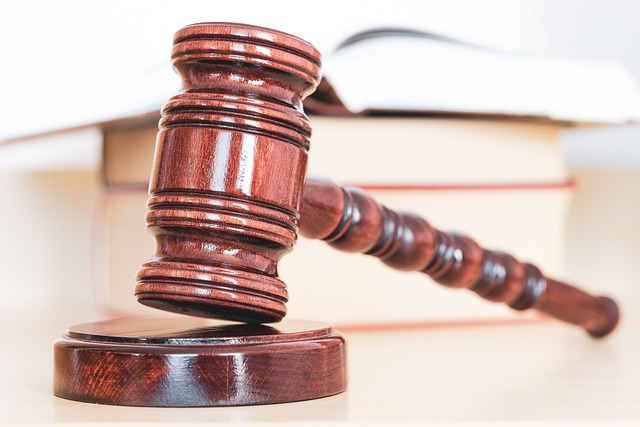U KHIN MAUNG (A retired diplomat)
Introduction
1. First of all, please permit me to assert that the law is everybody’s concern. Nobody is above the law. Equality before the law is a universally accepted doctrine. And as a well-known principle, we accept unanimously that man is a social animal. Men have to communicate, cooperate and coordinate with each other. In this law of nature, some may have done wrongful acts to others. Then, law, a criminal law comes into play to take action against the wrongdoing or the offence. Though not a crime, if a man has done something wrong to others, or if there is a dispute between members of a family, or between a man and woman in their marital relationship, then relevant civil law has to be taken up. Ever concerning relationships between sovereign states, we have a universally accepted charter known as the United Nations Charter or Constitution.
2. Then what is law? In essence, “law” is the regime that orders human activities and relations through the systematic application of the force of a politically organized society or through social pressure backed by force in such a society. It is the legal system. And Oxford Advanced Learner’s Dictionary defines the term law as follows: –
“Law is the whole system of rules that everyone in a country or society must obey”. Generally speaking, there are two kinds of laws. Local law or domestic law and international law. In essence, domestic law means the law of or the law relating to a country. It is also known as the law of the land. International law is the legal principles governing the relationships between nations, more modernly, the law of international relations embracing not only nations but also such participants as international organizations, multinational corporations’ non-governmental organizations and even individuals such as those, who invoke human rights and commit war crimes.
3. The Rule of Law
The Rule of Law. This phrase means equality before the law, fair play, and uniformity of laws for all citizens and public servants alike. It also means that disputes and differences will be brought to the courts of law and justice and peacefully settled under the law. The rule of law is often equated with law and order. So, I would like to assert that “law is a necessity for the citizens, for the organizations, for the associations, for the states etc., so as to enjoy peace, progress, prosperity, harmony and development, such as economic development, technological development, etc. Law, in this regard, means both the law of the land or municipal law and international law. As regards the rule of law, Dr Maung Maung, the world-famous and renowned legal giant, stated that “the first essential condition for making democracy secure in our lives is to base all our activities firmly on the rule of law.”
Law and Order
4. Well, dear reader, as a retiree with some sort of legal background, I would like to present to you that, law and order and the rule of law are two principles, quite similar to each other. Where there is no law and order, there will be no rule of law. Instead, there will be anarchy, political unrest, social unrest, chaos and confusion. So, the rule of law, or law and order, is a necessity for a nation to enjoy peace, progress, prosperity, and development. Needless to say, where there is no rule of law, there will be no peace, no prosperity, no progress, no development. Where there is no rule of law, I don’t like there would be one iota of peace, progress, and prosperity in this world of ours.
Conflict of laws
5. Conflict of laws is a difference between the laws of a state or a difference between states or countries. If there is a conflict of laws or if there is a difference between the laws of the same state, then the latter law shall prevail over the earlier one. Just for example, if there is a conflict between the Opium Act enacted since the colonial days of Burma and the Suppression of Narcotic Drugs and Psychotropic Substances law, then the latter one, recently passed in our union, will prevail. And if there is a conflict between local law or municipal law and international law, then international law shall prevail. Moreover, if there is a conflict between an executive order and a provision of the constitution, then the guardian of the constitution the supreme court of a state, will make a verdict and the court’s verdict will prevail. In this regard, we could take a lesson or an example from the executive order of former President Donald Trump of the United States of America and the Court’s verdict. Former President Donald Trump issued an immigration ban to the United States from some Muslim countries, But the US court of law temporarily blocked the President’s immigration ban judging that the immigration ban was not in accord with the constitutions of the USA legal phrases.
We have an old saying in our Myanmar language. If translated into English, I think it may read: a man may not live hundred years long, but he may be faced with over a hundred cases or problems1. And another old saying, that depicts our national Myanmar character; the character of forgiveness. If translated that old saying, I think it may read “Let amity be everlasting and enmity be ephemeral” 2 In English, I think, we may say “Let bygones be bygones” significant legal terms (Foreign terms used in law).
6. Well, “Law is so wide a subject to explain only in one single article. So, may I present to you some significant legal terms and their definitions as follows:
(1) A priori (Latin) is based on deduction rather than experience.
(2) Ab initio (Latin) from the beginning – for example, this agreement is void “ab initio”
(3) Ad hoc (Latin) made or done for a purpose. For example, “an ad hoc tribunal was set up to deal with the claims.
(4) Bona fide (Latin) genuine, real, for example, a bona fide reason.
(5) De facto (Latin) in fact, whether by right or not. For example, “She has acquired de facto control of the company.
(6) De jure (Latin) rightful by right, For example, a de jure claim to the territory.
(7) Ex parte (Latin) on the part of one side only, for example, the lawyer made an ex parte application to the court to obtain an emergency injunction.
(8) In absentia (Latin) while not present. For example, as the defendant was abroad at the date of the hearing, the case was continued in absentia.
Conclusion
7. As regards, “the rule of law”, Dr Maung Maung, a world-renowned legal giant, mentioned in his book “Law and Custom in Burma and the Burmese Family” as follows:
“The first essential condition for making democracy secure in our lives is to base all our activities firmly on the rule of law”
“In the afore-mentioned book, Dr Maung Maung had also mentioned.” “Laws are rules of civil conduct enforced by the state.” “Law is founded on morality and morality finds its foundation in the moral integrity of the individual. Destroy morality, we destroy law.”
“Living laws are necessary for a living society, and the bloodstream of law needs to be constantly renewed and nourished so that it may accommodate the change in its continuity, youth in its age.”
So, let us learn and grow as the days go by. In this article, learn, I mean, to please learn anything worthwhile, including law, of course. Why? Because the law is everybody’s business and everybody’s concern. “Ignorance of the law is no excuse.”
Reference:
(1) Law and custom in Burma and the Burmese Family.
(2) Legal English-Rupert High.
(3) အသက်တစ်ရာမနေရ ၊ အမှုတစ်ရာတွေ့ရတတ်သည်။
(4) ချစ်စကို ရှည်ပါစေ၊ မုန်းစကို တိုပါစေ။















